Statements

We need to rethink economics as well as the economy. Just one example: We used to talk about micro-economics and macro-economics; the former was households and companies, the latter regarded countries. Now we need at least six levels of economics: households, companies, neighborhoods, countries, continents, and the globe. For each of them we need to understand different levels of complexity, consumption, production, and decision making, and all of them need to be sustainable, preferably regenerative.

The black-yellow government in NRW (North Rhine-Westphalia) has recently (November 2018) decided to introduce a new subject at secondary schools: “Economy-Politics” (“Wirtschaft-Politik”). The previously used slogan “Economy into the school” makes it obvious to me what this is all about: a monoparadigmatic mediation of economic knowledge and thinking. As a Hessian school teacher, I want to prevent this process because I consider an interdisciplinary, life-oriented socioeconomic education as indispensible in order to offer young students diverse accesses to the important questions of our time that equally include sociological, political, legal and economic explanations.

Economy serves humans living together. It ensures an organized cooperation and enables everyday life to be kept together. In this spirit, the socioeconomic analyzes economy as embedded into society and nature. Therefore, sustainable economic acting means that the economic improvement-calculation is replaced by a holistic and systematic view onto socioecological and socioeconomical systems. Sustainability as a social and individual ability includes the skill to notice contradictions. Socioeconomic education has to foster this skill. In this process, it supports individuals to understand concrete problems as well as different positioning, to identify conflicts of aim, to ponder perspectives and, on this basis, to make collective decisions instead of reducing social guideline decisions to the individual election at the market.

In common economic education, the focus is not (anymore) on economics. Today, the centre of attention is marked by the practice of a thought method (“economy”), which has implied requirements that are not highlighted. The problem is that this has nothing to do with education in the classical sense. Thus, today’s economic education does not fulfill its promises anymore; neither its content (economy) nor its form (education) fulfills these promises. I’m convinced that a new economical education has to not only ensure the reflection of a basic economical knowledge, but also has to develop a social and realistic attitude. Socioeconomic education contributes central impulses to these aims.

In contrast to most (proclaimed) “postmodern” loosening in other social areas, the political economy at universities is on its way to becoming a basic-science solidification and closure in favor of a “modern” neo-classical standard. The research-driven forces in this development also mirror themselves – according to a layout by the Bologna University – in the university’s education, and this education then functions as an important impulse generator for the education in schools in this area. To break this circulus vitiosus, reorientation on the basic levels of socioeconomic education is desperately needed.
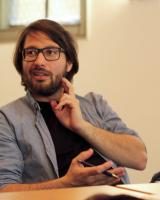
It disturbs me that a rational logic does not only percolate more and more social areas, but also percolates the thinking and locations – educational institutions and subjects – where these should be trained. Socioeconomic education prevents a (paradigmatic) constriction of thinking and acting. With the help of diverse perspectives of social sciences, a critical reflection becomes possible and, thus, to shape oneself and the world responsibly and self-determined.

Theories and perspectives of analysis are always connected to specific cognitive interests. Political-economic and socioeconomic approaches will focus on questions that address the power relationships, interests, discourses and also the reasons of economic and social development and crisis processes.

Socioeconomic education and science as an interdisciplinary project is a chance, apart from the basic economic “set of figures” and “blind spots” of the disciplinary and paradigmatic narrowed economic mainstreams, to fully grasp “the whole of economy”. Economy could be understood as a social event from which politics, culture, social and ecological aspects cannot just be subtracted without consequences. Especially such common, but thus, not less non-adequate differentiations as them between “Economy” and “Society” could be questioned, because these differentiations do rather reproduce aporia of a self-referential “non-embedded” capitalist economic system than exploring them. The matter could also be basic questions as the one, whether in respect to the humanitarian and ecological rejections of our global “externalization society” a theoretical and practical “renewal of the economic science” would be appropriate. For such an alternative economic science and economy, however they might look like, could another, socioeconomic education and science, be a good start and solid foundation, even if it is not clear where to start. But in education as well as science, it is the problematization of the problems’ beginning – as Hegel would probably say – not the worst start. And a possible start is still better than being at the end already.

Neither “economic science” nor “education” exists beyond the “social”. Does that mean that socioeconomic education is a tautology? Unfortunately not, when we look at how instrumentalist economic issues are treated at many schools and universities under the label “education”. As an economic educationalist I want to contribute through research and teaching so that unredeemed educational promises are taken seriously, for the empowerment of teachers and learners and for a reflective, enlightened treatment of economic issues.

Social events are a consistent phenomenon. From its great tide the ordering hand of the researcher forcibly lifts out the economic facts,’ reads the first sentence in Schumpeter’s “Theory of Economic Development“ published in 1912. For me, socioeconomics means to be open to diverse methods such as theories and to always understand economic processes as social processes.

These days, socioeconomic education in economy is a highly demanded approach because the economic element cannot be separated from the social one. Financial crises are symptoms of social and economic problems. Therefore, their common appearances have to be analyzed socioeconomically. The fact that modern money mediated access to resources demands a precise analysis to be able to intervene and counter steer in the case of undesirable developments. Socioeconomic education and economy can contribute to citizens’ enlightenment and can majorly prevent another loss of power to the technocrats and thus, another step back for democracy.
In the Austrian “Bildungslandschaft”, a disturbing trend of deproblematising socio-economic phenomena is discernible. Its facets range from being satisfied with the visual flawlessness of learning products and offers to passing on social responsibility to less powerful individuals and culminates in the negation of contingency. Urgent social transformation processes are caught in the tension between the collective and the individual, between power and powerlessness, between equality and disparity. They can only be carried out sustainably if their inherent questions are echoed in the places of education: How do we want to address the need for reproductive labour in light of gender relations and capitalism? How drastically will decentralisation in the financial sector change our everyday lives? How will those who cause irreparable damage to nature be held accountable? A comprehensive implementation of socio-economic education in schools and universities is crucial, because it requires opening up such questions in their contradictory nature, grasping their economic, political and spatial dimensions and thus creating discourse foundations for transformation processes. For what is problematic must not be de-problematised, what is multidimensional must not be thought one-dimensionally and what is in need of change may be shaped.

Relevant economics is workable only as a comprehensive socio-economics, which reflects the complexity of reality. And as such, it has to be interdisciplinary and pluralistic. A pseudo-science of closed equilibrium models with physical analogies of the last century leads to nowhere, or, at worst, to the current catastrophic economic, social and ecological developments of western societies. This not only applies to modern socio-economic research, which relates to other social sciences, evolutionary psychology, anthropology, phylogenetic evolutionary biology and the physics of complex systems, in all, a modern evolutionary systems science. It applies even more to the teaching in universities and high schools, which are stuck in the simplistic schemes of the 19th and 20th centuries and prescribe them in authoritarian-monopolistic ways as “truth.” This inhibits forming future generations of problem solvers.
The international heterodoxies nowadays offer powerful real-world bodies of knowledge, theories, methods, ontologies and epistemologies, and policy recommendations for public and private strategic action. Being someone, who was involved in founding the post-autistic movement in Europe 25 years ago, later the Plural Economics Network, Exploring Economics, and Promoting Economic Pluralism, who has taught pluralist economics internationally, published in pluralist journals, edited international volumes on pluralist teaching, and authored a pluralist international textbook of microeconomics, my place obviously is in the association GSÖBW/ASEER.

Socioeconomic education has to accommodate the demands for a renewal of economy by presenting its self-concept as less a natural, but more as a multiparadigmatic social science to obligate itself to the principles of interdisciplinary and controversy and also the permanent ethic reflection. During times where more and more social areas arrange themselves according to the market’s ideal, a deepened argument with these (dys-)functionalities are indispensable. To explain the reciprocal connections and occasionally differing logics between politics, sociology and economy, contents of teaching and learning have to address and provide a “clip” between these domains.

Every socioeconomic education has to start with the clarification that the German “economic wonder” was no wonder. Based on this (alienated) provocation, one can retrace what a education means that integrates the social into the economical and vice versa: the comprehended and understood appropriation of social, political, economic contexts, economic thinking and action, which are of a material nature – and nothing supernatural sticks to them. And it is the transformative adaptation of this view onto the world in which’s execution the -”I-” develops a more and more differentiated image of the world that is the foundation for theoretical and practical faculty of judgment. In this respect, a socioeconomic education (and science) corresponds with the (classical and still relevant) educational promise per se: the overcoming of alienation through adaptation.

The issue of low-profit is a financial-scientific reclaimed land and an interdisciplinary challenge for the socioeconomic education. On the one hand, this includes that businesses lay out innovative CSR-measures and simultaneously prefer welfare aims to financial aims. On the other hand, businesses need cheap capital to finance demanded investigations. Because of this, the following question is also important: How can the state and the central bank establish a convenient framework for sustainable low-profit investigations?

The teaching of the universal application of the cost-benefit-calculation onto all life situations strengthens learners’ self-economization and conveys the certainty that the economic worldview is the right one. The socioeconomic education on the other side acknowledges the diversity of motives of action and treats the “homo oeconomicus”, who aspires to maximize his/her value or rather economic efficiency, as a model next to others. The socioeconomic education reflects upon the historic changeable relation between economy and society, provides a materialistic concept of economics and acts on the assumption of a serving function of the economy for the society and politics. Socioeconomic education is problem-oriented. It orientates itself less in the demand of recognition of economic disciplines but more in the existence and solution of individual and social problems and in the development of a critical empowerment. Considering this background, socioeconomic education asks about the educational contributions of the different socioscientific disciplines and grants the various forms of knowledge (scientific, occupational, common knowledge) at the same rank. Economic thinking and acting requires the understanding of others. Instead of the autonomous subject, that manifests itself in the homo oeconomicus, the socioeconomic education represents the educational aim to act and learn self-determined and solidly united with others.

Economic science is a science by humans. Its topics are developments, conditions and futures of civil economy. It demands historical, legal and social information as well as universal-theoretical reflexive research and education. In this context, today’s political economics requires a course correction. In doing so, a matching discipline type of economic science must not be fully renewed. Max Weber preferred a social economy when he conceptualized a textbook for the economic subject: “I propose: education books and manuals […] This is surely harmless and fits circumstances. If not possible, then easy: ‘The political economy’ […] But the first is better. From my view, not only most ‘modern’ but also best matching name for this discipline” (Max Weber 1912 to the publisher Paul Siebeck about the title of the later set “Grundriss der Sozialökonomik” 1914ff.).

Socio-economics education aims to meet political, social and economic challenges. A socio-economic approach enables a multi-perspective view, while at the same time highlighting controversial aspects of integrative disciplines. To keep up with the constant changes in politics, society and the economy, a socio-economic education must continuously reflect the economic reality.
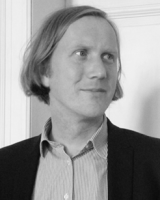
In order to support teenagers in their search for their own political position, it is important that they learn about and analyze different economic orders in school. Real processes of exploration and (self-)location are tied to pluralistic education offers. That is exactly what socioeconomic education and science stand for. Its relevance also lies in the integration of different thinking approaches. Thus, learning within the intersection of economy, politics and society presupposes that the economic, political and social perspective are indeed understood in their own logic but are still connected to each other. A strict differentiation would be artificial and would contradict the learning and knowledge requirements of teenagers. Economic questions can represent a generative approach to thinking about politics and society and vice versa.

The subject “Geography and Economics”, which is well institutionalized at Austrian schools on the secondary level, understands economy as socially embedded and shapeable. In the center of it stand the humans, in social, spatial and economic acting contexts. A central aim is to foster young learners’ responsibility as well as reflective appropriation of society in the context of the development of the ability to orientate, judge and act.

A reductionist worldview in research, education and in practice has the tendency to leave out very important externalities to humankind’s detriment. It also supports the notion of narrow expertise and hierarchies when what the world really needs is humility and cooperation. The idea of observing, working and reflecting in larger interconnecting systems, like socio-economics, is attractive to me because we attend to the complexity of wicked problems. At the same time, this inter-disciplinarity leads us to finding innovative solutions and maybe even has room for some joy and fun in the process. Imagine! The problem-solvers are also the humble and curious learners.
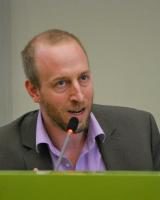
Oftentimes, (college) students’ contact with the subject “economy” is reduced to them learning the dominant approach of the neoclassical thinking (by heart). Homo oeconomicus, market balance, technical progress, growth and efficiency build the paradigm in which future members of society will learn how to act. This “knowledge” is yet too one-dimensional in its theoretical and methodological approach and neglects, in its analysis, other paradigms and methods as well as historical, social and ecological contexts. Thus, a serious social aberration emerges combined with an insufficient ability of problem-solving. This is where the socioeconomic education joins in: It is multidimensional and interdisciplinary and offers the potential to change the basics of social thinking and acting into something positive.
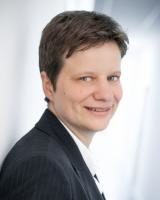
These days we are facing the mystery of how, according to its genesis, a distant and extremely one-dimensional economic science can simultaneously be enormously influential in society as a whole. If socioeconomic thinking wants to solve this present and urgent mystery, it does not only have to consciously embed economy into its social, political, historical and cultural contexts but also has to research how economic knowledge itself functions as an integrative part of reality in which responsibilities and potential for change emerge out of it for the economists. The new society does not only have to face these and other challenges between society and science, with regards to content, but has to provide an institutional space as well – a rarity in today’s science landscape. Another special feature is that the society gives special space to questions and answers, knowing how constitutive they are for science and didactics.

Socioeconomic perspectives make economy in its feature as social challenge understandable and encourage us to argue with structures of economic power. Because of this, it is a democratic command that economy at schools and universities be implemented within its social interdependence.
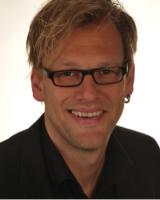
Socioeconomic education is a fundamental part and framework of a well-grounded argument about vocational education programs. The educational aspects as well as the one of socioeconomics are in their connections reflection points for a pedagogical, didactical and professional-didactical discussion to develop, analyze and implement curricula into wide social responsibility. The design and limitation of specialized areas in their social-scientific production of disparities, their production and their reproduction have to be spotlighted.

To be individually relevant, economic education has to orientate itself at the lifeworlds of its learners. Such a constructed economic education is socioeconomic education. It offers learners the opportunity to critically reflect upon their roles in the tension between economic, ecological and socio-cultural thinking and acting. Socioeconomic education can thus be understood as a contrast medium in the process of (economic) socialization of learners, which contributes to the development of their self-determination.

It’s the economy, stupid.” To be honest, when I was a student of business education and also in my early days as a research assistant, I rejected the economic side of my studies and discipline for a long time. It’s seemed to me that economic education, was somehow arrogant to environmental destruction, injustice and blind to the intertwining of society, culture, nature and economy. Furthermore the way of enabling learning within traditional economic education (in e.g. Universities) felt restrictive, limiting and exclusive to me. By dealing with the Guiding ideas of socio-economic education, I rediscovered my passion for the topic: Economy, its importance for our society and our coexistence in this one world. As a teacher, they offer me a basis for reflection in order to design and open up transformative learning spaces with learners who stimulate critical reflection and joy in co-creation.
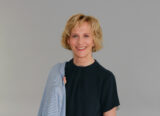
Socio-economic education aims at the emancipatory core of educational processes. It enables critical reflection on social conditions and contexts. Inequality, climate and care crises are unresolved challenges of our time. In order to see societal problems in structural contexts and not to individualize them and dump them on the shoulders of individual actors, socio-economic perspectives are indispensable.
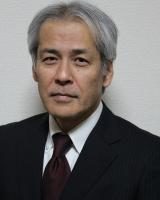
Social studies as a subject has the task to foster the basic skills of shaping a democratic society. Therefore, the most important issue in school is that students treat the society not as fixed but rather as something that they can newly shape themselves. To do so, a problem-oriented learning has to be ensured so that students do not view society’s given forms and systems as fixed but rather analyze and differentiate them and verify their rightness to finally discursively determine better solutions. Such learning of a critical construction of society offers the knowledge and perspectives of economics besides the other socioscientific aspects as an important medium. The economic education in social studies becomes integrated into an education with the aim of shaping society because of its indispensible pedagogical effect.
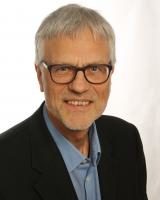
The answer to economy’s diversity, complexity and controversy and with it the connected social sciences is called socioeconomic education. Scientific probity and social responsibility demand a pluralistic teaching at universities as well as schools about economy and its relations to society. Only those who know about scientific thinking’s diversity about economy and the polymorphism of economic acting can handle today’s economic realities. Because of this, the plurality of social, political and personal concepts of a good economy and good economic acting belong in school and university curricula. Topics like this and similar ones deal with the socioeconomic discourse about teaching. The Association for SocioEconomic Education and Research offers space and context for this.
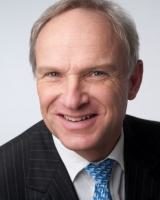
Socioeconomic education, its consolidation and distribution that the ASEER demands, is also an issue for endowments. This is because swimming against the hegemonic tide of neoclassical research and education at German universities requires solid support by the civil society to function as a counterbalance compared to the impact of federal institutions. Therefore, the support of private institutions is highly needed in this context because otherwise, we will drift further apart from political economics sui generis, whose supporters – following Keynes’ demand – do not have to be mathematicians, but also historians and philosophers, in order to be good economists.

As early as 1921, the industrialist and politician Walther Rathenau remarked: “The economy is our destiny”. Since then, this statement assuredly even became more important. In fact, the capitalistic genesis is characterized by an increasing orientation of human beings towards economic considerations instead of religious traditions. But also in economics there is no lack of creeds, because insight and interest are closely interwoven in this subject matter. A socio-economic education striving for enlightenment criticizes ideological economic doctrines in the guise of dogmata, incorrect information, academic misjudgments and popular errors. The fate of people is by no means just determined by uncontrolled economic forces, rather it comes down to make clear that in principle society is able to shape the course of events.
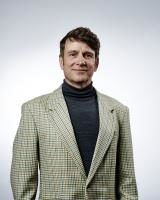
For me, economic education means the education of critical thinking, deep learning and critical questioning of seemingly matters of course. In doing so, future graduates of business and social economics will later learn to find answers to the present social questions together with others. A teaching, which uses narrative structures such as “the market” or “the business” as mythic heroes, who guarantee win-win situations and were restrained by their enemy: the state, would not be able to satisfy this demand if it remains the only story; just as little as the story of the noble stakeholder-capitalism that should replace the shareholder-capitalism and in which the new hero-role is assigned to a manager position that develops smart win-win situations for interest groups. In advisor mode mediated Manichean thinking spreads the ability of a dialogic together, discourse with others and alien perspectives among students. We, teachers, should always struggle with curiosity, the ability to question our own opinions, dialogic skills and critical thinking, even within ourselves.

In the light of my own research, socio-economic “Bildung” has two
dimensions: First, it is about the ability to critically reflect on economic analyses, theories and policies and to arrive at one’s own position; second, this requires conscious value attitudes that are emotionally rooted. The latter means adopting an attitude that emerges from an educational process and that drives one’s own engagement. An example of these connections is ‘social entrepreneurship’, which consciously binds itself to values and seeks economic solutions to social problems based on a realistic critical analysis. For economists, this means recognising that there is no such thing as value-free economics, and that economic knowledge is always fallible. In view of this fallibility, values must provide orientation. An example: When I was a student, it was considered theoretically self-evident and empirically proven that minimum wages cause unemployment. This influenced politics worldwide. Today we know that this view is wrong. If economic science had also been oriented towards values such as justice, and considered the supposedly certain knowledge as fallible, a whole generation would have experienced better living conditions, with consequences also for politics – think of populism in the USA.

It does not matter whether it is climate change, the fear of globalization or a housing shortage; economic interpretations of present challenges fall short due to their methodological one-sidedness and oftentimes can only offer orientation to questionable efficiency terms during the search of good economic development. Because of that, a reform of the economic education and science is indispensable in order to make economics reliable and relevant again.

Socioeconomic education is the key to a complex and networked thinking. It prepares the foundation for a balanced discussion about the diverse social, political, ecological and economic challenges of the future.

Undoubted, we live in a society that is marked by a rapid political, social and economic change and is permanently questioned in its “certainties”. A skill-centered socioeconomic education should put students in the position to deal with complex, controversial and pluralistic opinions in their daily routine, in politics, in the medial meditation and in social sciences as well as economics. The aim is a political education that helps to orientation and enables the individual to take responsibility over his*her own actions, even when no assured knowledge is available which complicates the ability to judge between “facts” and “fiction”.
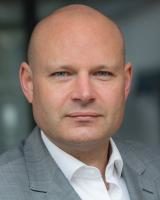
The matter of economic education must not be understood as the mediation of the misbelief that everyone is having a better life if everyone only thinks about themselves. It is rather about the understanding of our economic system within its political, social, historical and international contexts and to learn that the economic system undergoes permanent change and that it is subject to social conflicts and negotiation processes. Thus, instead of introductions to micro-economics and to the thinking of balance, we need a socioeconomic education.

Economic action always takes place within a social context – it influences it and it is influenced by it. One-dimensional explanations do not satisfy this complexity. In the worst case, they cause a “simplistic” standardized opinion that is transferred to other domains to encourage unethical and self-exploiting action. Socioeconomic education opens room for pluralistic explanations. Within the socioeconomic education, humans find themselves as subjects for whom economic does not take place in a vacuum but rather in social interaction. Socioeconomic education challenges to view problems critically from different perspectives and to constantly develop and question value measures that are also compared to economic action.

Socioeconomic means the attempt to examine economic correlations against the background of their social embedment. Therefore, a socioeconomic perspective perfectly enables an interdisciplinary and problem-driven approach that the modern social science oftentimes misses.

Mature citizens need a socioeconomic education and science! Today, our world is becoming more and more complex and even if the economy, politics and society have never been isolated domains, the interconnectedness between them become more and more obviously. Socioeconomic education and economy contribute to a better understanding of this complexity and the relations between different social systems. Within politics and political education, the ability to judge and participate have been important principles of democracy and a democratic education for a long time. Mature citizens even understand, debate and shape. However, it seems as if for economic and social questions that such an understanding of democracy does not take effect, although we are all part of “the economy”, for example as consumers, employees, entrepreneurs or depositors. If we, as a society, want that humans are capable of navigating their presence safely and competently and especially that we all shape our future together and in a democratic way, then we need a well-grounded socioeconomic education and science.

I think that the initiatives that have been pushed for some years to establish financial education and, more specifically, economics as a school subject separate from civic education are problematic because they give the illusion that an exploration of economics would be thinkable without an analysis and critique of existing (socio-economic) power and domination relations. Socioeconomic education, on the other hand, takes a comprehensive perspective on society, politics, and the economy. From a scientific point of view, the Society for Socio-Economic Education and Science offers an important space for research and discourse in this field.
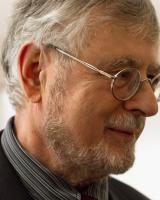
Uncontrolled globalization, escalation of systematic crises and accumulation of technological- and economic-caused natural crises, exploitation of natural resources and new forms of poverty and impoverishment – these key words may be enough to reveal that the reference to one-dimensional logics of action as the economic rationality and market efficiency, for example, are neither appropriate for the general nor for the vocational education to prepare students for the complexity of economic, social and political contexts. The financial crises and its dramatic consequences were interpreted by worldwide known experts not only as a political failure but also as insufficiency of economic specialized disciplines in relation to the economic and entire social system’s challenges. Interdisciplinary socioeconomic education “for everyone” in connection to a professional skill is indispensable for the democratic engagement and participation in a living and working environment and their responsible arrangement.
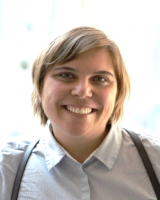
To engage myself in the empowerment of a socioeconomic education means to advocate a participation-friendly and solidly united society.

For the pervasion of the increasing complex economic and social processes, an informed and well-grounded socioscientific education is an indispensable condition. For this, a cultural or respectively contextual view that complements the one-dimensional and shortened orientation of the so-called mainstream economic science is needed. Because, to reach realistic and practical convertible economic- and socio-political conclusions, a modern economy has to systematically consider the social embedment of economic actors, which means to integrate the social relations and cultural reference points of individuals into the economic analysis. Besides the political dimension, it is important to explicitly include the meaning of norms, institutions, cultural embossment, experiences of socialization, social inequalities, power symmetries and the narrowness of cognitive processes for the explanation of modern economic systems. Socioeconomic education’s aim has to be to empower students to self-determination and to social responsibility within economic, political and social contexts.

The modern social science wants to explore contexts and structures within society, economy, politics, culture and many more to eventually provide scientifically-proven, factual knowledge. Sociology, business economics, political economics and others are part of this social-scientific overall project and only together will contribute to a preferably good and realistic image of the social world. What the one cannot do, it can learn from the others, or at least find out what it cannot do.

Socioeconomic education is necessary to reconnect economic action with social action and society. This presupposes that the economy enters a dialogue with the sociosciences and that sociology, as well, engages itself in economy and economic theories. Here, socioeconomic has to give itself a problem-oriented outline so that it can develop and imagine its own scientific objectives and questions.
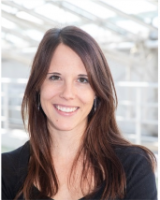
The Austrian school subject “Geography and Economics” defines economic action as spatial-historical embossed, socially embedded and individually meaningful. Thus, it follows a socioeconomic understanding of education. Nevertheless, the subject, as in other countries, is confronted with the repeated demand that the domain “economy” should be separated from its spatial-socioscientific dimensions. This has to be avoided because a socioeconomic education serves as the key for a reflective understanding of economical embossed social circumstances by making individual as well as social contexts, objections and challenges visible. This is an understanding that essentially contributes to the empowerment of students’ participation in and shaping of society.

Socioeconomic education itself contributes to an interdisciplinary thinking about the society’s establishment. Requirements for this are pluralistic approaches that can be questioned themselves. Thus, within competing models, theories and concepts, their implicit assumptions, normative reference points, central thinking and argumentation figures as well as their social consequences and effects will become discussable.
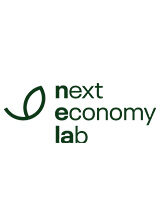
Socioeconomic education enables citizens to understand economic and social contexts as well as to question them. To do so, a critical, well-grounded analysis of the present social-ecological challenges as well as discussion about the already available, possible and diverse solutions are necessary. Therefore, socioeconomic education lays the foundation to shape our economy in a responsible way and to think about the conditions of a socially fair and ecologically sustainable economy. Thus, it is an important element for our democracy. When doing so, a direct tie to the target group’s questions and a participative as well as integrative methods are crucial.

At the latest since the global financial and economic crisis, we have known that pure economic education leads to a dead end. Socioeconomic education helps to comprehend the economic system as a social and unbalanced system, to better understand its opportunities and risks for society as a whole, to critically question models of whatever origin, and to develop approaches to solving the pressing economic and social problems.

We need socioeconomic education because of three connected reasons: Firstly, because economy’s dominant discourse is marked by escapist or even counterfactual theories that cannot convincingly explain economic structures (e. g. the legacy in business competitions) and processes (e. g. crises). Secondly, because the dominating assumption is that “the market” is always superior to any other regulatory gene and – resulting out of this – all areas of life have to be merchandised. Thirdly, because economy does not take place in a social vacuum in which dominant theories but not institutions as the participation and organizations like trade unions might not even be mentioned at all or are present as unfavorable for the market.
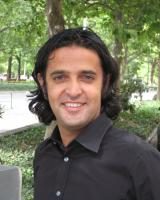
Socioeconomic education and science enable a humanistic access for everyone to present “big questions” in respect to a sustainable future for our world.

The extreme specialization among modern social science prevents an analysis of economic processes that reflect upon their historical, political and social conditionality. Socioeconomic education has to be designed in a multidisciplinary manner in order to lead again to an appropriate engagement with economic questions.

The widely spread information paradigm or information model creates the illusion that everyone could know and does everything at every time. However, many theoretical and empirical results suggest that not all of the important information within every life and consume area can be noticed, processed, retrieved, saved and considered in their expectations and decisions permanently. High-quality information, meaning a simple, precise, understandable and comparable consumer information, takes on a similar central role as the consumer education. Among other things, consume education should focus on the ability to select the importance and relevance of information that seems to be pertinent for the own process of problem-solving. Not so much numerous detailed knowledge, but rather a so-called meta-education seems to be productive. To this belongs the life-long training in school as well as the life-long, practical-oriented training after school for adults, preferably at the problem’s location and the people’s concernment. To do so, less of a (frontal) mediation of science in a “cinema principle” is needed but rather a frequent “practice” with practical cases of everyday life.

We live in an economic-dominated society; economic calculations and rules have become determining factors for many areas of life. The economic science has become society’s leading science. Among other things, this became possible because the economic science began to understand itself as “imperial”. Here, it cannot define any borders for its application. And, secondly, because it – in contrast to, for example, the classic political economic science – has lost the term “society”. An understanding of an economic society demands an economic science that understands itself within its social and cultural embedment, in other words a genuine socioeconomic position. Only from this point of view, can the performative effects of the traditional economic science with economy, politics and society be analyzed and elements of a new perspective onto the economic system be developed.

In light of the massive manipulation efforts by the private economy, financial economy and compliant scientific inside workers for a well-behaved market liberal perspective, a socioeconomic education that provides pluralistic viewpoints on our economic system has never been as important as it is today. The almost daily horrific news about the ecological threat of our planet has to, at least from my perspective, lead especially to the centering of economic growth’s definitive borders and of the resulting radical and for humans at first restrictive reforms for the limitation of our resource consumption and our environmental damage.

The economy is highly effective but not necessarily efficient. It misses many normative requirements to “re-rationalize” the visible deficits. It is an economy of guess, far apart from its own logistic understanding. The rich offers by other sciences remain unused as long as the economy misunderstands itself as a closed system and apparently clarified epistemology and semantic. At the same time, economic, cultural, technical and climatological problems are to be analyzed and solved, yet these problems are bigger than what the discipline is capable of. We are at the border of not only a digital transformation but also of an economic entanglement with other social and cultural dimensions.

Getting to know the economy within a socioeconomic understanding embedded into society and nature is essential for students of economic sciences. Only then, they can develop a good understanding for the challenges of our time as well as inequalities or ecological and climate crises.

General education neither prepares for specific jobs nor for the study of specific subjects at university bur rather supports young learners with their handling of various situations: private or social or political. Modern society is also an economic society which means that many life areas are influenced by economic principles. However, this society influences the economic section itself through social conditions and contexts as well as political decisions over the framework of economic action and for the prevention or compensation of illegal results by the market’s processes. Using the example of the vocational orientation, one can see that processes of a subjective identification and collective lobby as well as social structures in companies have to be addressed in order to ensure the accumulation of a responsible, realistic and sustainable image. Therefore, the embedment into economic contexts cannot open up the access to a career all by itself because that would be way to limited. According to its demand, general education addresses, funds and reflects upon such contexts and contradictions. Thus, socioeconomic education targets all of the three main social studies (sociology, economics, political science) and – depending on the subject – other disciplines. The most difficult task, to see, analyze and judge contexts and contradictions, must not be shifted onto the learners – due to the fact that supposedly, school is not able to do so anymore. Because of this, an integrated and integrating subject is indispensible.

For me, socioeconomic education is a sheet to be written on, which ideas of a good economic education can be documented.

Which economic education helps to understand and shape the late capitalist Anthropocene? How must socio-economic education be designed to enable people not only to deal with value in a quantitative way, but also to make socially balanced and sustainable decisions? Which insights does economic education have to teach in order to be able relativize the apparent value neutrality and broad applicability of “the economic method” at the right moments? Answers to these questions require a multi-perspective approach to economic problems. Sustainable socio-economic education integrates interdisciplinary and transdisciplinary knowledge, for example on the intersections of discriminations, on the taking planetary boundaries seriously or on the historical genesis of technology and culture. Socio-economic education and science today requires not only a change in teaching content, but also in customs. There are already many promising approaches for this – beginning with the disclosure of every standpoint, to embodiment, to the “classroom as a democratic setting” and to an “engaged pedagogy” (hooks 1994).

Every economic act is inevitably normative and should not be separated from ethical questions. In fact, a conscious cogitation about the cultural life design is needed, as we, as a society, try to realize a human-serving economy. In this sense, a well-understood economic rationality has to critically question the emerging economization of our life areas, to cautiously challenge the economic orthodoxy intellectually and to encourage a common rethinking. In this process, socioeconomic education counteracts the social embedment of economic logic and fights against a reductionist understanding of complex contexts, as the puristic classiness of neo-classical modeling simultaneously tries to mediate.

In order to understand and deal with the current social, political and ecological crises, society needs critical, transformative, socio-economic science and education. Only in this way can we understand capitalism, question the increasing economization of society and nature, and develop the capacity for utopia – and not only in the university ivory tower, but in close exchange with civil society, politics, and social movements.
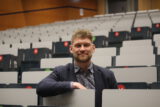
The decisive driving force for the equalisation of living conditions at the national and international level is education – codified in the spread of knowledge and qualifications (Piketty). These drivers are particularly constituted by the prevailing political and institutional frameworks. Without a multi-paradigmatic self-understanding, it is hard to imagine how modern social science at the intersections of political economy, sociology, pedagogy, etc. is supposed to understand these driving forces and how educational processes can be initiated in (higher) schools that prepare for the complex reality of life in an economised, rationalised world and stimulate reflection on it. Especially in the field of vocational education, we address (young) people who, on the one hand, act privately and socially as economic subjects and, on the other hand, are professionally involved in the structures of the working and economic world. Without a socio-economic perspective on education and science, which also leads to a socio-economic didactics, we cannot meet the emerging demands of accompanying (young) people in their complex developmental tasks.
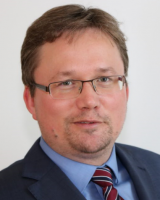
More than ever, our times are being shaped by social transformation, migration, globalisation, technical innovations and climate change. The simple economic model of perfect markets offers a theoretical reference point for economic thinking. However, pending questions need to be answered through a variety of scientific (some of them conflicting) disciplinary and interdisciplinary approaches, such as socioeconomics.

From the experience of over 30 years of educational work within the field of vocational education in various jobs that require training, a revision of the contents of the subject “economy and social studies” seems absolutely necessary to me. The present one-dimensionality of this subject’s neoliberal canon contradicts the trainees’ cognitive capacity.
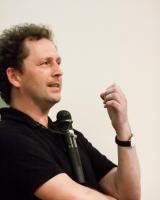
We need a socioeconomic education because traditional economic education is always exposed to the danger of an economic constriction. A school subject “economy” with economic science as the only reference discipline is not suitable, from my perspective, to optimally support students in their development of an appropriate, critical view on economic contexts in modern societies. On the foundation of good reasons, in Germany various integrational subjects have emerged for the mediation of economic education; one example is the teaching of ergonomics for which we train future teachers at the TU Berlin. As an economic- and political-scientist with a research focus on the area of a sustainable consumerism, I value the ASEER and its explicit professional opening beyond didactic questions.
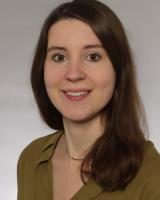
Present and future key problems and related issues are characterized by enormous complexity and versatility. In order to be able to deal with these, a multi-perspective, pluralistic approach is required, which only networked socioeconomic education and research can offer.

A socioscientific reflective subject of social studies offers already manifold connecting factors to support socioeconomic educational processes prematurely. But while primary students are not only expected to orientate themselves within a complex social world, but also have to expand their freedom of possible actions, various didactical proposals for the primary education oscillate between trivializations on the one hand and the orientation on professional concepts for secondary schools on the other. Both are neither appropriate nor meaningful.

Socio-economic education and science as a pluralistic and interdisciplinary approach to the phenomena that inevitably arise with the organised self-preservation of human beings is first of all a critique of the mainstream. However, this should not be the end of the matter, since in view of the foreseeable escalations, it is more important than ever to establish an economic system that satisfies three core concerns:
Socio-economic education and science as a practised plea for the establishment of an appropriate economic mode would take account of the fact, which can hardly be averted anymore, that the global labour force will have to devote an increasing part of its efforts to coping with the hostile changes in the ecological system as a whole. This part of the global labourforce will no longer be available for the development of a good life, because it will find itself tied up in a defence and conservation struggle for generations – that is what adaptation to climate change means in concrete terms. It would be wise to develop a realistic plan for this.
Socio-economic education and science is perhaps on a mission to revise, or at least make a modest contribution to, the ends-means reversal of capitalist economics: if generalisable (!) human concerns formed the horizon of economic activity, humans would cease to be means to other ends. Where chrematistics was, economics would be, that would be the meaning of this message in a bottle.

We are living in an economic-orientated Europe. Meyer (2005) talks about the culture of rationality and Vietta (2012) about the empire of rationality. How should and can an economic upbringing and education look like in a society in which rationality, functionality and economic thinking are central, highly important and influential ideas? Business education and economic education provide three possible answers: Firstly, the described cultural circumstances can be ignored or denied as not present. Secondly, that diagnosis can be approved in general, but, in detail, no reason can be seen to reflect upon economic and mercantile education’s orientation. Thirdly, the challenge can be accepted, and a solution can found. On the one hand, this solution can be found in an approach that puts the economy and self-interest into the center and, therefore, sees the pedagogical purpose to serve the economy and rationality. On the other hand, there can be a search for a business educational answer that puts the individual into the center and that considers the social consequences of economic thinking and action as well as reflexively questions scientific and social tasks. I try to follow this path in context of a reflexive business education. The embedment of humans and institutions into culture and society broadens the social dimension and, thereby, opens up the ethical-moral and civic elements that do not concentrate on the nation state only, but rather include the citizenship of Union. Due to the fact that the market-economy, as well as the state, lives on requirements that they cannot create themselves, ethics and politics become part of an economical education. Thus, economical action becomes more than the execution of pure economic rationality: Economic education is empty without economical content, blind without ethics and frameless without politics [slightly changed the blurb from: Tafner G. (2015): Reflexive Wirtschaftspädagogik. Wirtschaftliche Erziehung im ökonomisierten Europa. Eine neo-institutionelle Dekonstruktion des individuellen und kollektiven Selbstinteresses. Humboldt-Universität zu Berlin: Habilitationsschrift. Detmold: Eusl-Verl.].

Socioeconomic education has to be more than just a “tool-kit” which enables students to properly orientate themselves in a financialized world. It rather has to encourage the critical reflection of social changes and financialization and point out alternative ways of being. Society needs criticism to be governed and shaped not only by the ruling classes and elites.

The professional identity of the employees is the so called “Human Capital“ which is the basis for the quality of life and prosperity of all. Promoting their development must therefore be at the core of vocational and socio-economic educational processes.

The idea of “the economy” as a political relevant unit is a relatively new concept. With its neoclassical approaches, this idea is also very well suited to lever out democratic processes. Several young British economists call the result “Econocracy”, an incapacitated form of society’s organization that, according to their argument, is one reason for the in Europe observable populist movements. The demand out of this does not mean to abolish economics, but instead supports the promotion of pluralistic socioeconomics that reflects upon the strengths and weaknesses of the different approaches and also citizens, who are enabled to formulate their imaginations of a good life themselves and can discuss these thoughts with experts in a democratic discourse.

Economy is a fascinating subject and thus, should not be avoided by students with questions about this world. But not only this: All questions of a globalized, highly unequal and, itself, political closing world can, from my perspective, only be understood in a (futuristic) socioeconomic research and educational program.

Socioeconomic education motivates teachers and students to recognize scientific and social controversies about economic contexts as central parts of the economic science. All too often, present influential economic standard literature, which are embossed by dominant economic thinking from the time before the major financial crises at the beginning of the 21st century, simplified key messages of the neoclassical paradigm as apparently objective rules and conveyed simplistic market liberal political suggestions from it. Socioeconomic does not deny neoclassical paradigm’s right to exist but rather demands theoretical and methodological pluralism, interdisciplinary, self-reflection and the historical-conceptual classification of socioscientific theories on all levels of educational processes (school, university, research).

Our whole culture nowadays is percolated by economic thinking. Overt, but too often subliminal and unconscious as well, this thinking drives human actions and, in doing so, practices a great, oftentimes anonymous power over humans. The economy’s gain of greater importance as well as the global economic crises increase the significance of socioeconomic education which tasks itself to enlighten young individuals about economic contexts, to educate awareness for the diverse contradictions and manipulations of our present economic system and to educate them to economic subjects.

In the best sense, socioeconomic education is a critical education because socioeconomic education is genuine, interdisciplinary and applied and enables college students not only to a holistic and pluralistic problem analysis but also to a subjective reflexivity. Exactly because of this, it is possible for socioeconomic education to empower college students in their critical ability to judge and to equip them with thinking tools without guiding them normatively.

Oftentimes college students, viz. future teachers, hold a highly disciplinary view on the contents related to socioscientific (school) subjects. For example, they categorize economic phenomena as mono-disciplinary; through this one-dimensional framing, teachers might construct the concerned subjects’ meaning for the reality of the students. Thus, the market’s development and logic (but also for example consumerism, which is highly relevant for the students) will be separately examined from social phenomena. The very same happens with political institutions and processes; they are also being separated from an economic point of view and from genuine socioscientific perspectives. Thus, students have a simplistic image of three separated areas in mind. By doing so, the mediation of an integrative concept of society suffers and might be replaced by supposed more simplistic (maybe neo-classical) explanations. This is problematic in two ways: teachers are using simple explanations of society and, therefore, cannot provide any holistic socioeconomic perspective, which also means that they cannot convey any complex interdisciplinary methods of analysis to the students. Furthermore, (future) teachers examine students’ decisions, actions and motivation from a neo-classical point of view, which is relatively one-dimensional; this causes difficulty in reaching the students’ reality. Here is where socioeconomic education gains importance with its complex approaches that try to reach the social reality as well as the students’ reality by using interdisciplinary approaches. Socioeconomic education provides the potential for complex explanations that are indispensable for the members of a modern society to be able to orientate oneself within the society and to act independently.

We need a socioeconomic education because in a democracy, learners have the right to interpret economic embossed social problems and life situations from the perspective of various theoretical approaches and experiences from sociology, political science and economics. The handling of complex social challenges and life situations demands the skill to develop action and coping strategies on the basis of different theories and experiences. Socioeconomic education is fair because learners are not left alone with this task, but are rather supported by the educational system, schools and universities who obligate themselves to this task.